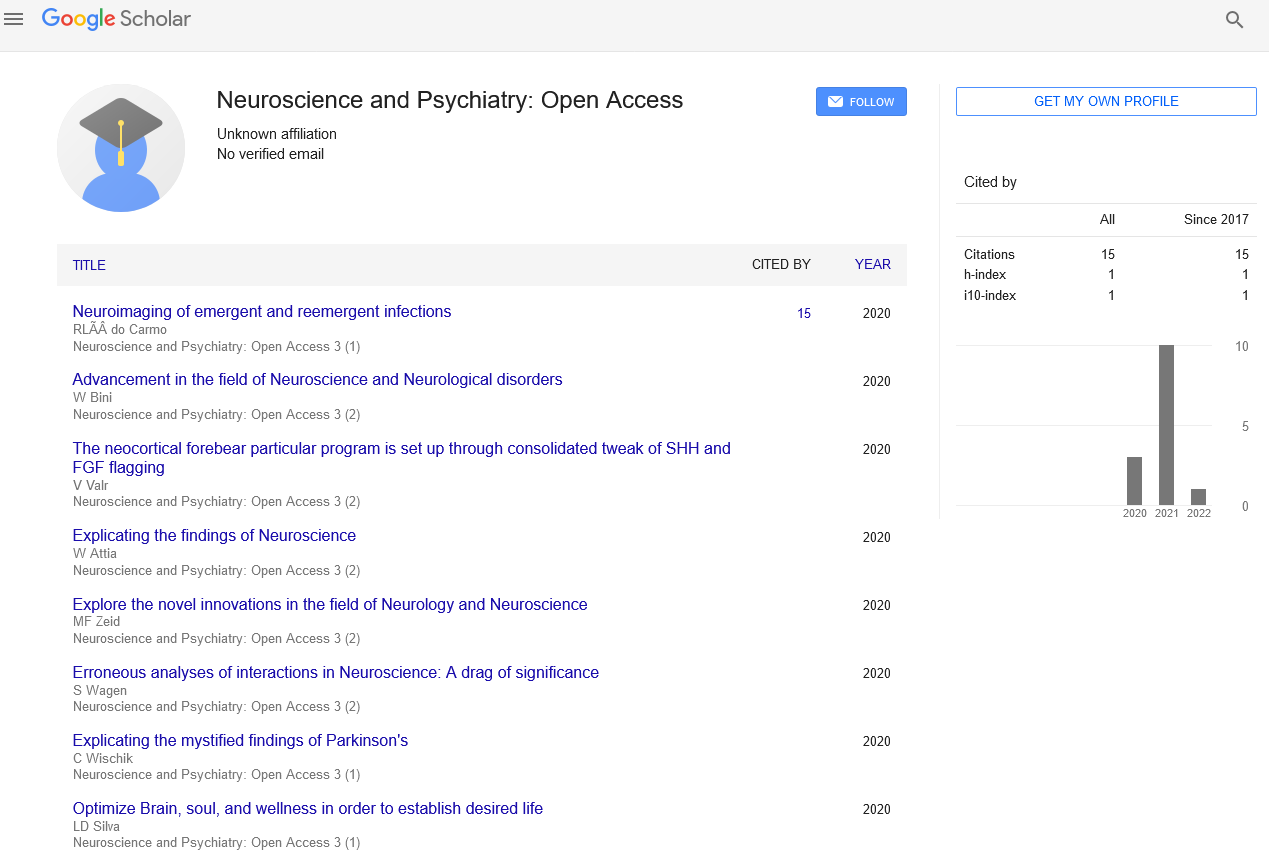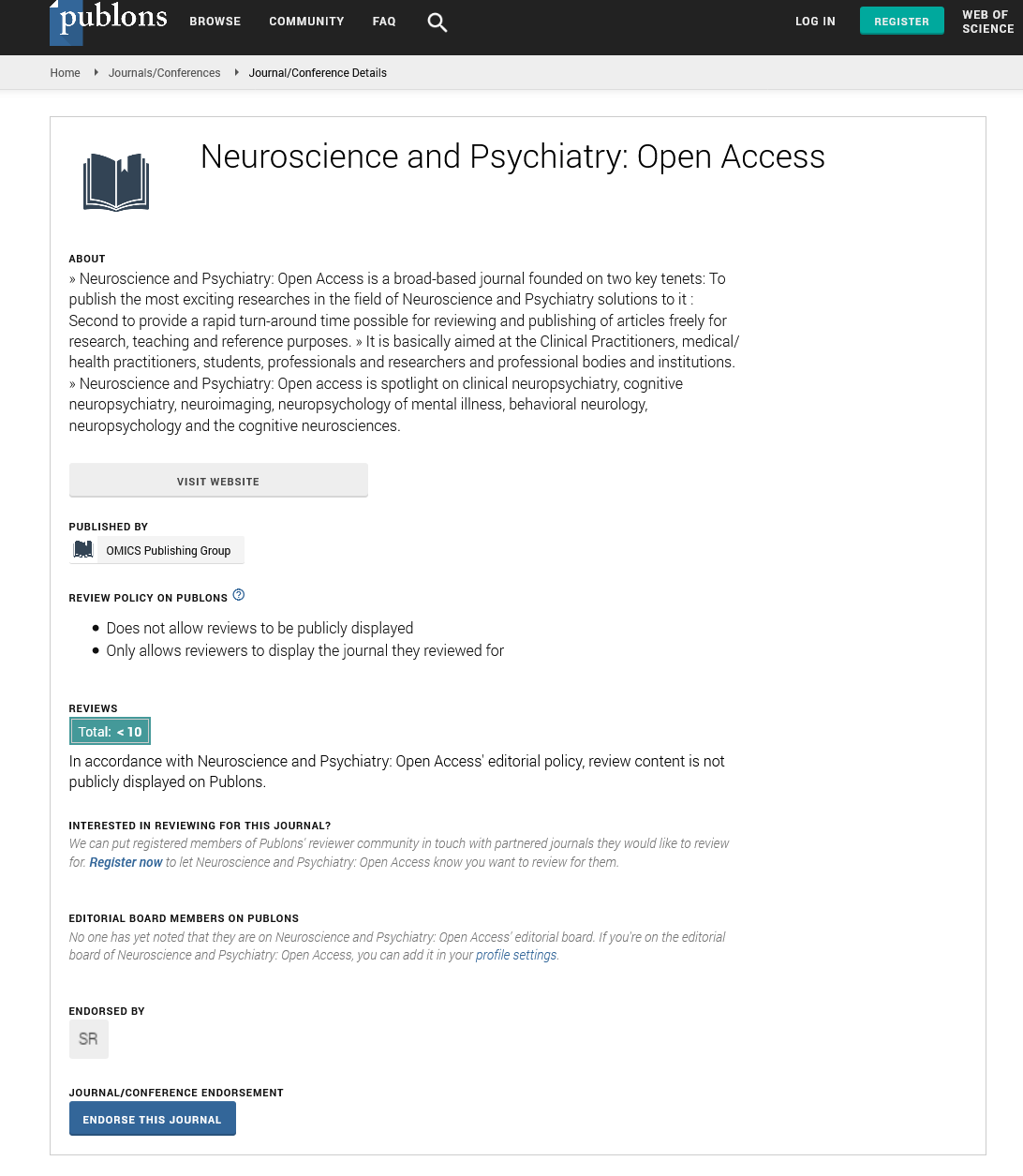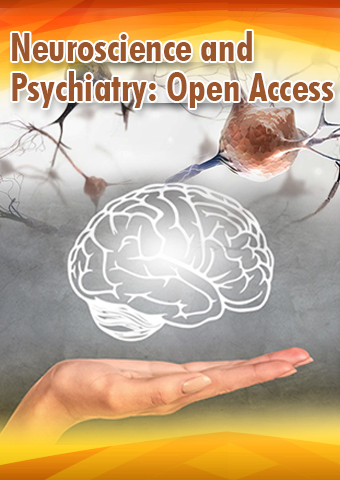Perspective - Neuroscience and Psychiatry: Open Access (2024) Volume 7, Issue 4
The Influence of Sleep on Cognitive Function and Mental Health
- Corresponding Author:
- Zhang Chong
Department of Psychiatry and Behavioral Sciences, Columbia University, New York, USA
E-mail: chong.z@hsc.utah.edu
Received: 19-06-2024, Manuscript No. NPOA-24-140651; Editor assigned: 22-06-2024, PreQC No. NPOA-24-140651 (PQ); Reviewed: 06-07-2024, QC No. NPOA-24-140651; Revised: 17-07-2024, Manuscript No. NPOA-24-140651 (R); Published: 24-07-2024, DOI: 10.47532/npoa.2024.7(4).245-246
Introduction
Sleep is a fundamental physiological process essential for physical health, cognitive function, and emotional well-being. The quality and quantity of sleep play a critical role in regulating various brain functions, including memory consolidation, learning processes, emotional regulation, and overall mental health. This article explores the intricate relationship between sleep, cognitive function, and mental health, highlighting the impact of sleep disturbances on brain health and potential strategies for promoting optimal sleep hygiene.
Description
The importance of sleep
Sleep is characterized by distinct stages Non-Rapid Eye Movement (NREM) and Rapid Eye Movement (REM) each essential for different aspects of brain function and restoration. NREM sleep supports physical recovery, while REM sleep is crucial for cognitive processes such as memory consolidation and emotional processing.
Memory consolidation: Sleep plays a pivotal role in consolidating new memories and integrating information acquired during waking hours. During NREM sleep, the brain replays and reinforces neural connections associated with recent experiences, enhancing memory retention and learning outcomes. Disruptions in sleep architecture, such as fragmented sleep or insufficient REM stages, may impair memory consolidation and cognitive performance.
Cognitive function: Adequate sleep is essential for cognitive functions such as attention, executive function, problem-solving, and decision-making. Sleep deprivation or poor sleep quality can compromise cognitive performance, leading to difficulties in concentration, slower reaction times, and impaired judgment. Chronic sleep disturbances have been linked to cognitive deficits resembling those observed in neurodegenerative disorders and psychiatric conditions.
Emotional regulation: Sleep influences emotional regulation processes, including mood stability, stress resilience, and emotional processing. REM sleep stages facilitate emotional memory processing and regulation by integrating emotional experiences with cognitive networks. Sleep deprivation disrupts these mechanisms, contributing to heightened emotional reactivity, irritability, and mood disorders such as depression and anxiety.
Impact of sleep disturbances on mental health
Sleep disturbances are prevalent among individuals with psychiatric disorders and contribute to the onset, severity, and maintenance of mental health symptoms. Conversely, addressing sleep problems can improve psychiatric outcomes and overall well-being.
Depression: Sleep disturbances, including insomnia and hypersomnia, are core symptoms of major depressive disorder. Disrupted sleep patterns exacerbate mood instability, decrease resilience to stress, and impair cognitive function. Treating sleep disorders concurrently with depression management enhances treatment response and reduces recurrence rates.
Anxiety disorders: Anxiety disorders are characterized by excessive worry, restlessness, and sleep difficulties. Chronic sleep deprivation heightens anxiety symptoms, increases physiological arousal, and impairs coping mechanisms. Addressing sleep disturbances through cognitive-behavioral interventions or pharmacotherapy can alleviate anxiety symptoms and improve quality of life.
Bipolar disorder: Sleep disruption plays a critical role in the course of bipolar disorder, influencing mood cycling between manic and depressive episodes. Irregular sleep-wake patterns, reduced need for sleep during manic phases, and hypersomnia during depressive phases contribute to symptom exacerbation and functional impairment. Establishing sleep stability and routine is essential in managing bipolar symptoms and promoting mood stability.
Schizophrenia: Individuals with schizophrenia often experience sleep abnormalities, including prolonged sleep latency, reduced REM sleep, and fragmented sleep architecture. Sleep disturbances in schizophrenia correlate with cognitive deficits, psychotic symptom severity, and impaired daily functioning. Integrating sleep hygiene strategies and targeted interventions may improve sleep quality and enhance treatment outcomes in schizophrenia management.
Promoting optimal sleep hygiene
Optimizing sleep hygiene practices is essential for maintaining healthy sleep patterns and promoting cognitive function and mental health:
Sleep environment: Create a comfortable sleep environment conducive to relaxation and restorative sleep. Ensure a dark, quiet, and cool bedroom environment, free from electronic devices that emit blue light and disrupt circadian rhythms.
Sleep schedule: Establish a consistent sleep-wake schedule, maintaining regular bedtimes and wake-up times even on weekends. This promotes the synchronization of circadian rhythms and enhances sleep quality.
Stimulus control: Limit stimulating activities, such as heavy meals, caffeine consumption, and vigorous exercise, close to bedtime. Engage in relaxing bedtime routines, such as reading or meditation, to signal the body’s transition to sleep.
Technology use: Minimize exposure to screens (e.g., smartphones, computers, TVs) before bedtime, as blue light inhibits melatonin production and delays sleep onset. Use blue light filters or nighttime modes on electronic devices to mitigate these effects.
Behavioral interventions: Cognitive-Behavioral Therapy for Insomnia (CBT-I) is an evidence-based intervention that targets maladaptive sleep habits and cognitive processes contributing to sleep disturbances. CBT-I techniques include sleep restriction, stimulus control, relaxation training, and cognitive restructuring to promote sustainable improvements in sleep quality and duration.
Future directions and research
Advancing research in sleep medicine and neuroscience continues to elucidate the intricate mechanisms linking sleep, cognitive function, and mental health. Future directions include:
Biological markers: Identifying biomarkers of sleep quality and cognitive performance to predict individual susceptibility to sleep disorders and psychiatric conditions.
Intervention strategies: Developing personalized intervention strategies tailored to address specific sleep disturbances and their impact on mental health outcomes.
Technology and monitoring: Integrating wearable devices and digital health technologies to monitor sleep patterns, assess treatment efficacy, and support self-management of sleep hygiene practices.
Public health initiatives: Implementing public health initiatives to raise awareness about the importance of sleep hygiene, early detection of sleep disorders, and access to evidence-based treatments across diverse populations.
Conclusion
In summary, sleep is integral to cognitive function, emotional regulation, and mental health across the lifespan. Optimal sleep hygiene practices are essential for promoting brain health, enhancing cognitive performance, and mitigating the risk of psychiatric disorders. Recognizing the bidirectional relationship between sleep disturbances and mental health underscores the importance of comprehensive treatment approaches that address both sleep disorders and underlying psychiatric conditions. By prioritizing sleep as a pillar of health, individuals can optimize their well-being, resilience, and quality of life in the face of cognitive challenges and mental health concerns.


